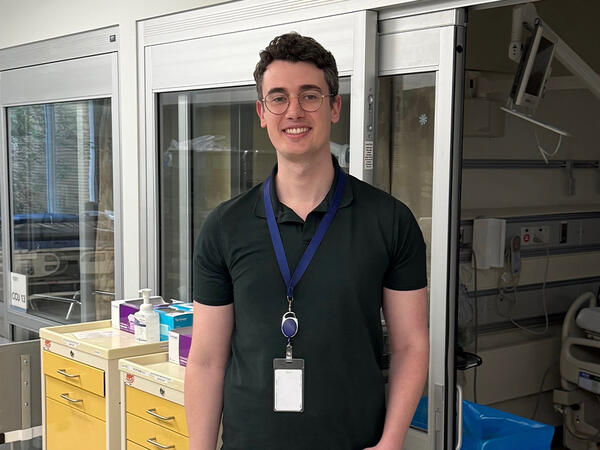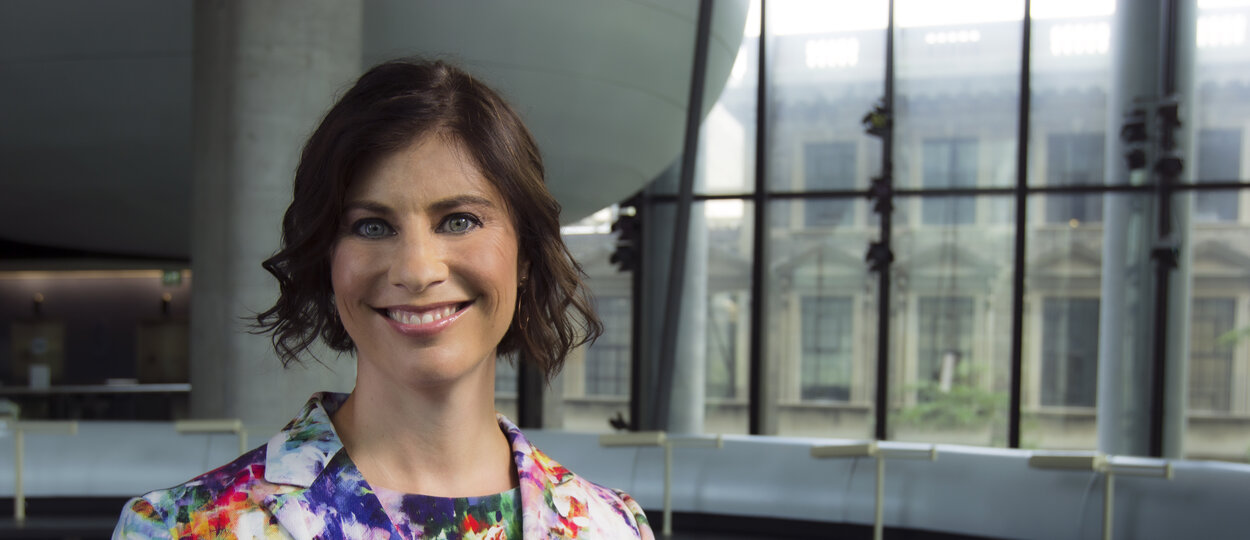Jamie Kellar has been teaching pharmacy students at the University of Toronto for seven years. As assistant professor at the Leslie Dan Faculty of Pharmacy and a former advanced practice pharmacist at the Centre for Addiction and Mental Health (CAMH), she is dedicated to connecting students to as much real-world knowledge as possible within a lecture setting.
“To provide good care, you need to have a sense of what it’s like to live illness,” says Kellar. "And when it comes to mental illness, there can be a lot of fear and misconception associated with it. I think it’s important to breakdown any potential fear and our students have been really receptive to this.”
Incorporating lived experiences
Kellar does this by incorporating the voices and experiences of people who live with mental illness and have received care and support through the healthcare system. In the third year course she teaches, billed as “Pharmacotherapy 7”, students learn about medication function and management for major mental illness like schizophrenia, bipolar disorder, and depression. Every year she works with psychiatrists at CAMH to coordinate a panel of current or former patients to speak to the class for a two-hour lecture.
"Students have an opportunity to see the people behind the diseases they are learning about and to see that very often they don’t fit into existing stereotypes."
"With the right care, people can manage these illnesses effectively and be successful in their lives,” says Kellar who says panel participants have come from all walks of life and professions including lawyers, artists, and healthcare providers.
Kellar also works with PharmD students to host mental health movie nights at least once per term. “We screen movies and documentaries related to mental health and substance use and we follow up with a discussion, often about how people were portrayed in the film and how media can contribute to or correct misconceptions,” she says. On occasion, people involved in making the films have attended the screenings and engaged in the discussion.
This work all contributes to empowering pharmacists to be better care providers and advocates for their patients, Kellar explains. “When a patient gets sick, pharmacists are often the first to know. So it’s not only about the medication-related advice you provide, it’s about your overall interaction with that person and your understanding of their experience and how you may be able to connect them with other services.”
Since integrating this kind of nuanced, first-hand experience into her course, Kellar has seen more students requesting rotations at mental health facilities and course evaluations have been very positive. “Bringing patients in to share lived experiences was one of the most valuable parts of the course,” one student wrote.
More News
Image

Pharmacy alum’s research shows how full-scope practice improves cancer care
Honoured with a national award, Adrian de Boer says his residency experience was a powerful reminder that he's making a meaningful change to the pharmacy profession.
Read More
Image

Pharmacy alum passionate about helping community pharmacists practice to full scope
As a pharmacy leader at Rexall, Heidi Wittke uses frontline experience to lead initiatives that improve patient care
Read More
Image

Bridging Research and Industry: GRIP 2025 highlights innovation and real-world impact
Over 200 attendees from academia, healthcare, and industry gathered last week for the 2025 GRIP symposium, celebrating the depth and diversity of graduate student research.
Read More
